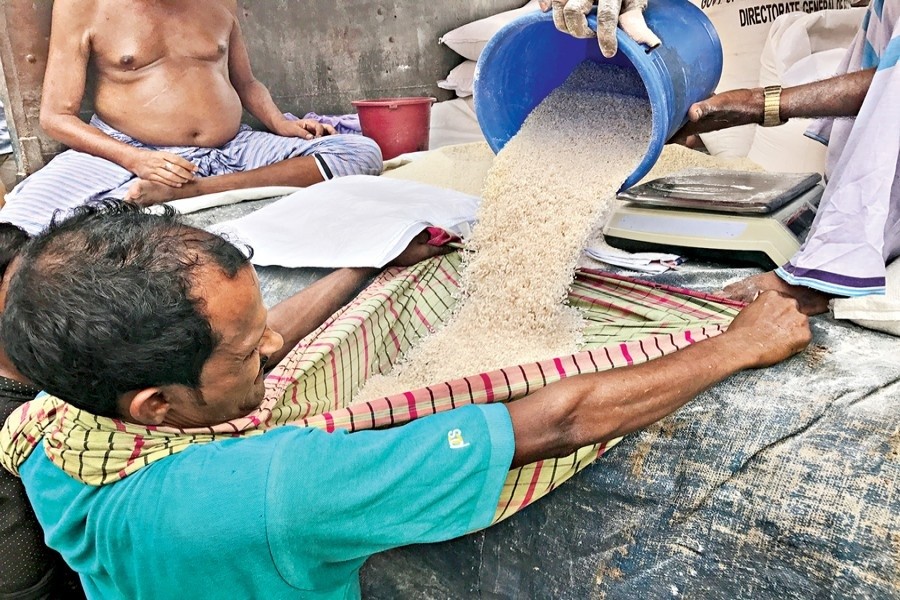Food Minister Md Qamrul Islam claims the Tk 10-per-kg-rice welfare programme will not cut into Bangladesh’s food reserves.
Despite last year’s poor harvest due to natural disasters, this year’s production and imports will raise reserves to record levels, according to Islam.
The food minister believes that the reserves will allow the government to implement the previous welfare programmes in addition to the Tk 10 rice plan.
The government has announced that it will provide rice at Tk 10 per kg up to 30kg per month to five million families from March after the recent imports of massive amounts of food grains.
The programme will thus sell a rough estimate of 138,000 tonnes of rice to poor families at the discounted rate each month. The programme will need about 690,000 tonnes in five months.
The food minister gave assurances that the programme would not result in a deficit in food reserves.
The government had over 1.4 million tonnes in food reserves, with rice accounting for 1.1 million tonnes, the minister said on Sunday.
Another 114,000 tonnes of food grains were waiting for permits at the ports, including 36,000 tonnes of rice and 78,000 tonnes of wheat, according to the Ministry of Food.
Last June the government’s rice reserves fell below 200,000 tonnes, which caused instability in the rice market and price hikes. Prices have yet to return to the pre-June level.
“Last year there was a deficit in food stocks because we could not collect the Boro crop. This year the reserves will pass record levels in the next few days. As such the food welfare programmes will cause no issues with food reserves.”
In 2017, the government targeted the collection of 800,000 tonnes of rice in Boro season (May-August), but managed to collect only 337,525 tonnes of parboiled and white rice due to floods and inclement weather.
But in the current Aman season, which began last December, the government has collected 538,612 tonnes as of February 20. The rice collection operation is set to end on February 28.
The government had initially targeted the collection of 300,000 tonnes of Aman rice but the target was increased quickly.
Imports are also having a significant effect on the food reserves, the minister said.
“Between 400,000 tonnes and 450,000 tonnes of imported rice are in the pipeline and will be added to the reserves before the coming Boro season,” Islam said.
The highest level of Bangladesh’s food reserves was 1.6 million tonnes, he said.
The government, according to bdnews24, bought rice at Tk 39 a kg in Aman season. This means it will have to face a substantial loss when it sells rice for Tk 10.
“We know this,” Islam said. “The government will make a loss in order to support the poor through this programme.”
At least 200,000 tonnes of rice will be used in the government’s relief and food for work programmes, the food minister said.
“But even then rice reserves will not fall below 700,000 tonnes.”


